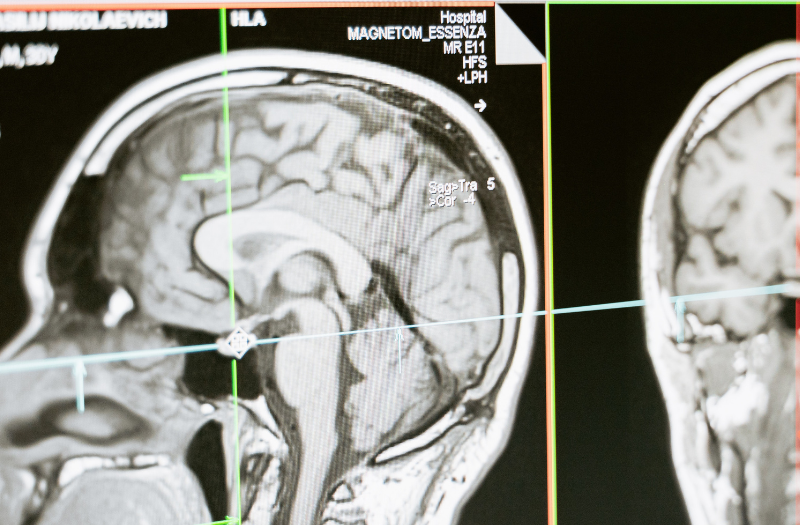World Brain Day is celebrated every year on July 22nd to raise awareness about neurological diseases and disorders, and the impact they have on many lives.
It is estimated that more than one billion people worldwide are affected by mental and neurological health problems. According to data from the Sociedad Española de Neurología [Spanish Society of Neurology], more than 7 million people in Spain are affected by neurological diseases, and these diseases lead the ranking of incidence, mortality and/or disability.
People who suffer from mental or neurological health problems have long been stigmatized, particularly in developing countries, where lack of access to adequate treatment can lead to discrimination.
By sparking debate around the importance of brain health, and raising awareness of these issues, World Brain Day is a very important event that can help those suffering from neurological diseases.
Why do we celebrate World Brain Day?
The World Federation of Neurology (WFN) was established on July 22, 1957. It is an international organization formed by neurologists from various countries, and is responsible for several publications and journals aimed at promoting research in neurology and educating the wider public about this field of medicine. Currently, the Federation is one of the most prominent promoters of neurology and brain health research in the world.
The main goal of the event is to increase public awareness and spread information about brain health. This year, the theme of World Brain Day 2023 is "Brain Health and Disability"; an initiative to close gaps in disability awareness and overcome the barriers to health care that people with neurological disabilities often face.

World Brain Day has 5 key objectives:
-
Prevention. Brain disabilities can be prevented, treated, and rehabilitated.
-
Awareness: Global awareness of brain health can help reduce disability associated with brain disorders.
-
Access. Access to professional care, treatment, rehabilitation, and assistive technology must be universally available.
-
Education. Knowledge about brain health increases equity for those living with brain disabilities.
-
Advocacy. Brain health is a human right.
Other important dates dedicated to brain awareness
There are many other days related to neurological diseases that are celebrated by professionals in collaboration with the World Health Organization (WHO), for example: World Brain Cancer Day, World Brain Injury Day, World Stroke Day, Epilepsy Day...
Highlighting these pathologies on specific days has proven to be very useful in promoting awareness of these diseases and their impact around the world, including in developing countries in Asia, Latin America and Africa.
Most common brain diseases
The brain and spinal cord make up the central nervous system and are responsible for most bodily functions, such as movement and speech. When the brain suffers from a neurological disease, disorder, or condition, the damage can affect the patient's daily life.
These are some of the brain diseases that are most common around the world:
- Migraine. These are intense headaches that usually last between 4 and 72 hours. Those who suffer have them may suffer nausea, dizziness, and vomiting, as well as sensitivity to light or noise.
- Stroke. A stroke occurs when the brain does not get enough oxygen and necessary nutrients. It is usually due to a blood clot or sudden bleeding that reduces the blood supply.
- Dementia. This condition alters the behavior and thought processes of those who suffer from it. There are many different causes of dementia, such as Alzheimer's disease or vascular dementia. Dementia usually affects people over 65 years of age, although it can also occur in younger adults.
- Alzheimer's. This is the most common type of dementia. It affects thinking, behavior, and ability to perform everyday tasks. The first symptoms are usually memory loss and difficulty finding the right words in everyday communication.
- Brain tumors. When cells grow abnormally, they can form benign or malignant tumors. Malignant tumors are cancerous and can spread to other areas of the brain or body.
- Epilepsy. This is a neurological condition in which the person has recurrent seizures. It is one of the most common disorders of the nervous system and can affect people of all ages.
- Parkinson's disease. Parkinson’s is a disorder of the nervous system caused by damage to the cells that generate dopamine, an essential chemical for controlling muscles and movement. It mainly affects people over 65 years of age, but symptoms may gradually appear earlier.

Tips for brain health
There are some things we can’t control, having a genetic risk for dementia, for example. But we can control our level of physical activity, our diet, our level of social engagement, and how much we use the brain. When we do these things, we support our brain and mental health.
These are some of the tips that Instituto Clavel has for you:
- Maintain a regular sleep schedule, getting a minimum of seven hours of sleep.
- Exercise regularly for at least half an hour every day.
- Do cognitive exercises, such as memory games, crossword puzzles, puzzles...
- Be aware of and monitor cardiovascular risk factors: blood sugar, hypertension, tobacco, alcohol ...
- Take precautionary measures while driving: car seat belt/motorcycle helmet.
- Seek medical help in case of stress, depression, or anxiety.
- Limit screen time on electronic devices.
- Preserve and nurture social interactions.
- Eat a healthy diet including green vegetables, fish, nuts...
Foods that are good for your brain
Instituto Clavel Brain Unit
At Instituto Clavel we have a Brain Unit that treats various brain pathologies, such as epilepsy, brain tumors, hydrocephalus, Parkinson's disease, and essential tremor. Find out more about the treatments we offer, performed by our dedicated specialists using the latest technology for cranial and brain surgeries, here:
Treatment for pathologies of the brain and skull
On World Brain Day 2023, Instituto Clavel wants to do our part in contributing to education about brain health, as well as give medical attention and access to information about treatments. If you have any questions or would like to make an appointment, please do not hesitate to contact us.
Categories: Prevention, Brain treatments, Brain pathologies
